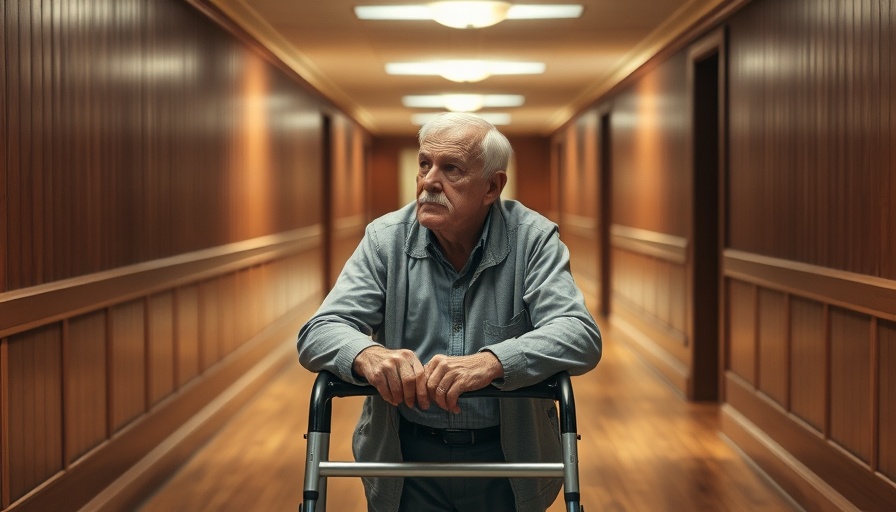
The Importance of Elevators for Seniors and Disabled Tenants
The recent advancement of Senate Bill 1802 in Texas addresses a pressing issue faced by many residents, particularly seniors and individuals with disabilities. Elevators are not just conveniences; they are essential for accessibility in multi-story buildings. Senator Carol Alvarado's legislation aims to ensure that landlords uphold their responsibility to maintain these critical mobility assistance devices. The hope is to alleviate the struggles faced by tenants who depend on elevators to access their homes, especially when elevators fall into disrepair.
A Gap in Tenant Protection
Currently, Texas law does not comprehensively protect tenants who rely on elevators. Senator Alvarado’s bill introduces an explicit requirement for landlords to keep elevators, ramps, and handrails in working order. This legislation comes as a response to observed incidents where seniors were trapped in their homes due to malfunctioning elevators, highlighting an urgent need for strong tenant protections. By codifying these requirements, the bill fills a significant gap in existing law, thus safeguarding vulnerable populations.
The Broader Impact on Housing Accessibility
This legislative move is part of a larger conversation about housing accessibility in Texas and across the U.S. Many apartment complexes cater to seniors and persons with disabilities, and ensuring the functionality of elevators can greatly impact their quality of life. As cities continue to urbanize, access to fully functional housing options becomes increasingly critical. This bill could set a precedent for similar legislations in other states that face similar challenges.
Public Support and Advocacy
Community advocacy plays a crucial role in pushing such bills forward. The stories of seniors who have experienced the consequences of broken elevators—stranded for hours or unable to attend vital appointments— galvanized public support. Local organizations and advocates have championed this cause, emphasizing the importance of legislation that puts vulnerable populations first. The voices of those affected have been invaluable in shaping the narrative and urging legislative action.
Future Predictions: What Lies Ahead?
As the bill progresses through the legislative process, its implementation could mark a significant step towards improved tenant rights in Texas. If passed into law, its success may inspire further regulations on tenant protections, particularly concerning accessibility. Stakeholders, including landlords, tenants, and advocacy groups, will need to monitor the legislation closely. The implications of its enforcement could lead to necessary adjustments in property management practices, signaling a shift towards more accountability in the housing sector.
The Challenge of Compliance for Landlords
With the introduction of stricter requirements, landlords may face challenges in compliance, particularly in older buildings where infrastructure shortcomings exist. Some may argue about the financial implications of maintaining their properties to meet this new standard. However, ensuring accessible housing should be seen not just as a regulatory challenge but as a moral obligation to the community. Balancing this responsibility with business interests is a crucial point of discussion that the Texas legislature, landlords, and tenants must navigate going forward.
Steps for Tenants to Prepare
For tenants affected by such changes, knowing their rights and options will be essential. Preparing to communicate with landlords about maintenance issues, understanding lease agreements, and possibly organizing tenants' associations can empower residents. Knowledge about their rights under the upcoming changes in legislation can be a potent tool for advocacy. Furthermore, tenants should keep records of any issues related to mobility assistance devices in their apartments, which can be pivotal if legal action becomes necessary.
In Summary
Senate Bill 1802 represents a positive move toward ensuring safer and more accessible living conditions for all Texas tenants, with a particular focus on supporting our most vulnerable populations. Through collective advocacy and legislative action, the safety and well-being of countless individuals can improve significantly.
As citizens await the final decision on this important legislation, it remains crucial to stay informed and engaged. Advocacy groups continue their efforts to ensure that necessary actions are taken for proper implementation. Understanding these developments not only informs but empowers community members—allowing them to participate proactively in the fight for their rights.
**Stay proactive by becoming informed about tenant rights as Texas moves forward with this significant legislation!**
 Add Element
Add Element  Add Row
Add Row 



Write A Comment